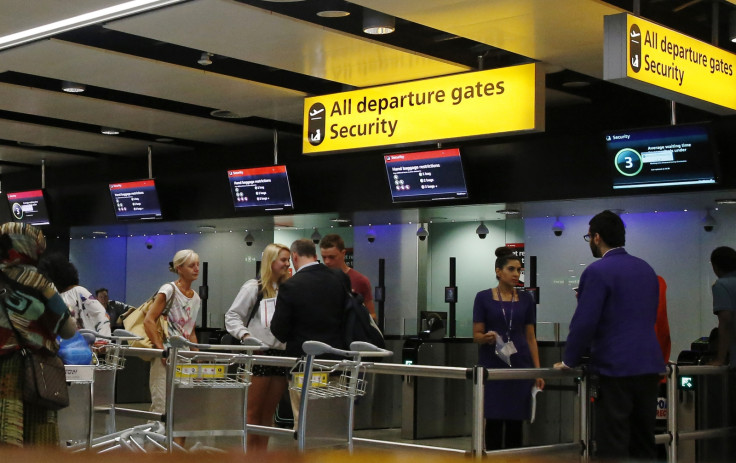Ebola: Screening procedures at Heathrow branded as 'chaotic'

Pauline Cafferkey, the nurse being treated for Ebola should not have been allowed to leave Heathrow airport, admit health officials.
Consultant psychiatrist Martin Deahl, who sat next to Cafferkey on the flight to Heathrow, described the screening as "chaotic", in a BBC report.
He claims there were too few staff on duty and the rooms where returning volunteers were held were too small.
"We got to Heathrow, off the plane just like any other passenger, and then got to UK Border Agency staff who checked the passports," he told the Telegraph.
"At that point we were identified as having come from Sierra Leone and escorted by a Border Agency officer to a suite of rooms just off that arrivals hall and where we waited to have our so-called health check.
"The rooms were very small, the staff were small in number and seemed inadequately prepared, and the thermometers and the kit that we were given to check our own temperatures every day for the next three weeks, they basically ran out so half of us didn't get that kit. Mine is supposed to be couriered over today."
He added: "If there had been alternative arrangements for poor Pauline, an awful lot of people on that flight to Glasgow wouldn't be going through the anxiety and the stress that I am sure they are going through at the moment."
The NHS volunteer who worked for Save the Children in Sierra Leone, complained of having a high temperature after leaving a screening area. She was retested but then allowed to fly on to Glasgow.
Cafferkey was tested seven times in total – once as part of a routine screening, and then six more times after complaining of a high temperature.
Prof Dame Sally Davies, the Chief Medical Officer, said there were questions over whether officials should have been "more precautionary" before allowing her to leave the airport.
The nurse returned to her home in a taxi, before ringing the NHS as her condition worsened.
Two more people are being tested as reporting potential symptoms of Ebola: one at the Aberdeen Royal Infirmary and one at the Royal Cornwall hospital in Truro.
Cafferkey could be offered plasma with anti-bodies donated by Pooley, the nurse who was successfully treated at The Royal Free after developing Ebola in Sierra Leone.
"We do have available a small amount of convalescent plasma. Plasma is the liquid of blood and convalescent is the recovery phase," said Prof Dame Sally Davies, the Chief Medical Officer.
"Will Pooley gave a donation of the plasma and the theory is as we fight off infections we make anti-bodies and if you harvest the plasma you got a source of antibodies that you can put in to someone and you'd expect it to work. But the cornerstone of treatment remains fluid and electrolyte treatment."
The experimental drug ZMapp, which was used to treat Mr Pooley, the first UK citizen to contract the disease, is "not available at the moment", added Prof Davies.
Health officials are still trying to trace more than 100 passengers on two flights taken by Miss Cafferkey - from Casablanca to Heathrow and then Heathrow to Glasgow.
© Copyright IBTimes 2025. All rights reserved.






















